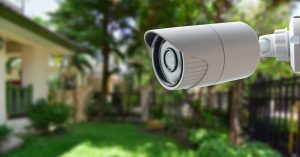 Q: My condominium association has installed several security cameras in the common areas, including the pool area. There was an incident between myself and another owner last week at the pool and I requested a copy of the security camera video footage. I submitted my request to the manager in writing, but the manager has refused to provide me with copies of the requested videos. The manager told me that she didn’t have to provide me with these videos because videos are not considered official records of the association. Are videos considered official records of the association under the law? A.L.
Q: My condominium association has installed several security cameras in the common areas, including the pool area. There was an incident between myself and another owner last week at the pool and I requested a copy of the security camera video footage. I submitted my request to the manager in writing, but the manager has refused to provide me with copies of the requested videos. The manager told me that she didn’t have to provide me with these videos because videos are not considered official records of the association. Are videos considered official records of the association under the law? A.L.
A: No. In my opinion, video recordings from security cameras are not an official record of the condominium association as they are not a “written” record of the association. The Florida Condominium Act defines the scope of official records. In 2015, the “catch all” provision in the statute was amended to specifically include the word “written,” a qualifier as to what constitutes official records.
Based on this change in the law, since a video recording is not a “written” record, owners do not have the right to inspect the video under the statute.
Q: My homeowners’ association approved amendments to the declaration of covenants last year, including a use restriction which prohibits the use of clotheslines outside of the home to dry clothes. An owner refuses to comply with this restriction. The board sent her a demand letter and she responded by stating that Florida law protects her right to use a clothesline to dry her clothes outside her home on her lot. Is she right? M.B.
A: Section 163.04(2), Florida Statutes, states that a deed restriction, covenant, declaration, or similar binding agreement may not prohibit or have the effect of prohibiting clotheslines from being installed “on buildings erected on the lots.” The statute is not clear as to whether a homeowners’ association can limit where clotheslines are located.
However, the statute on its face only applies to clotheslines “on buildings,” which would not appear to address those set up in yards. I am not aware of any cases which have addressed this issue.
Q: I requested several official records from my condominium association including copies of all the current insurance policies. I am a snowbird and have returned to Wisconsin for the spring and summer months. The manager has refused to mail me the requested records until I pay certain copy costs. I don’t feel that I should have to pay for these copy costs. Is the manager violating the law? S.M.
A: No, the manager’s position is correct under Florida law. Pursuant to the Florida Condominium Act, a condominium association is only obligated to make qualifying official records available for inspection within ten business days after receiving a written request from an owner. The law requires that the records shall be made available within 45 miles of the condominium property or within the county in which the condominium property is located. The association is not obligated to mail, e-mail or otherwise deliver requested records to an owner.
The statute also states that the association has the right to charge a reasonable copy cost for official records that are asked to be copied as a result of the inspection. Therefore, the association not only has the right to charge copying costs (if they are reasonable) but is going above and beyond the requirements of law by offering to send the records to you.
A 2008 arbitration case issued by the Division of Florida Condominiums, Timeshares and Mobile Homes addressed a similar fact pattern. In her decision, the arbitrator ruled that the association had the right to charge a fee for the reproduction of records and further ruled that the association did not violate the statute by refusing to supply the records until the fee was paid by the subject unit owner.
David Muller is a Board-Certified Attorney in Condominium and Planned Development Law with Becker & Poliakoff, P.A. in Naples. Send questions to dmuller@beckerlawyers.com.